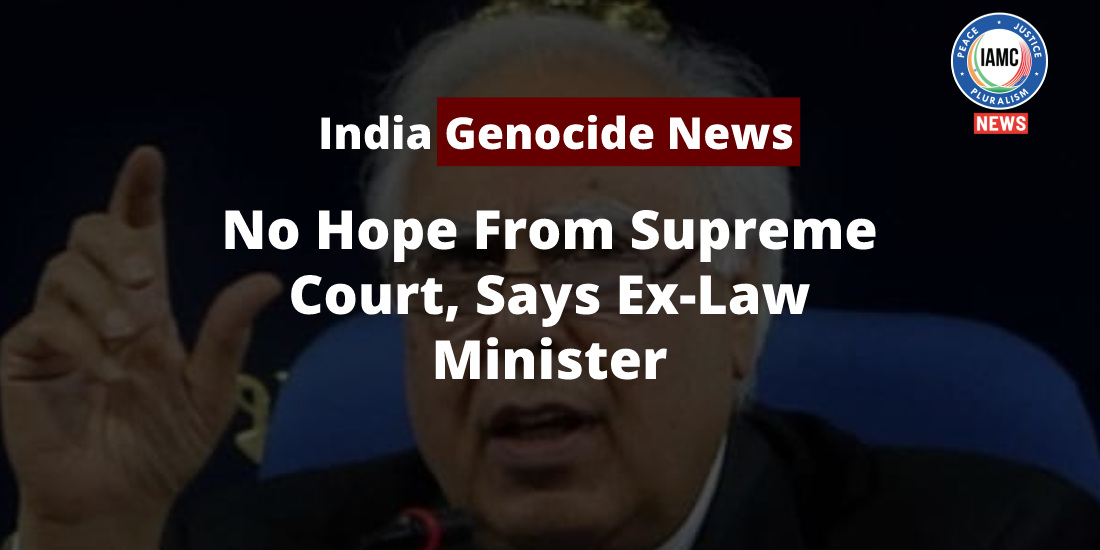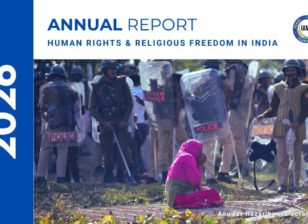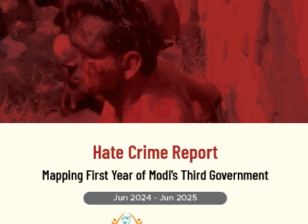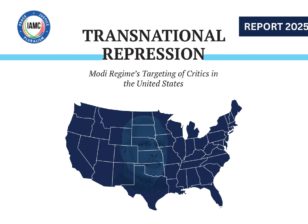Former Law Minister and Supreme Court Advocate Kapil Sibal Calls Supreme Court Corrupt, Says There’s No Hope Left From The Highest Court
In a sensational statement that is an indictment of India’s Supreme Court, former Law Minister and senior lawyer Kapil Sibal, who has practiced at the court for 50 years, has slammed the court openly suggesting that it had become partisan and corrupt in the years since Prime Minister Narendra Modi took power.
Speaking at a people’s tribunal organized over the weekend in New Delhi, India’s capital, by civil rights organizations, Sibal said there was “no hope left” in the Supreme Court.
“If you think you will get relief from the Supreme Court, you are hugely mistaken. And I am saying this after completing 50 years of practicing in the Supreme Court,” Sibal said.
“A court where judges are instituted through a process of compromise; a court where there is no system to determine which case will be presided over by which bench, where the Chief Justice of India decides which matter will be dealt with by which bench and when, that court can never be independent,” he added.
Two lawyers who support the Court under the Modi regime have filed separate pleas seeking to initiate contempt proceedings against Sibal for his comments, which they have claimed were made with “intent to disgrace and scandalize” the sitting judges of the Supreme Court.
The tribunal was organized to highlight the Supreme Court’s most recent and egregious failures to deliver justice to persecuted minority groups in India. This includes the Court’s rule to dismiss a petition to investigate Modi’s role in the 2002 anti-Muslim pogroms in Gujarat state, as well as a petition seeking justice for indigenous Adivasis who were massacred by Indian police in 2009.
Karnataka Authorities Side With Hindu Extremist Groups To Say Historical Idgah Maidan Area Belongs To Government
Karnataka state authorities have declared that a plot of land known as Idgah Maidan in Bengaluru city belongs to the government’s Revenue Department, despite the fact that it has been under the care of a Muslim organization known as the Waqf board since the 1850s.
The declaration was celebrated by Hindu supremacists, who had demanded to know the status of the land’s ownership a few days prior. Hindu extremists have now planned to hold Indian Independence Day celebrations on the land.
“We have been fighting over the issue since 2017. Muslims have been given separate Idgah Maidan and kabristan (funeral ground) by the state government. If they are still insisting on conducting prayers here and stake claim [on this property], then their intention is very clear. They don’t want any other community to make use of this property,” said Bhaskaran, the president of a local Hindu supremacist group.
Idgah Maidan has been a contested site for years. The land has been used to host Eid gatherings for Muslims every year.
Despite Nearly 5,000 Arrests Under India’s Draconian Anti-Terror Law UAPA In Two Years Only 149 Are Convicted
By the Hindu nationalist Bharatiya Janata Party’s (BJP) own report, 4,690 people were arrested under India’s draconian anti-terror law Unlawful Activities (Prevention) Act (UAPA) between 2018 to 2020, but only 149 were convicted under it. The statistics were reported by Union Minister of State for Home Nityanand Rai, a member of the BJP.
The shocking discrepancy between the number of arrests and the number of convictions points to the overuse of the UAPA by the Modi regime, which often seeks to silence activists, journalists, and other critics by labeling them as terrorists. The majority of these detainees are often Muslims.
Human rights organizations such as Amnesty International and Human Rights Watch have labeled the UAPA as a tool used to suppress dissent in India. Notable detainees under the UAPA include Muslim journalist Siddique Kappan, activist Umar Khalid, human rights defender Khurram Parvez, and others.




